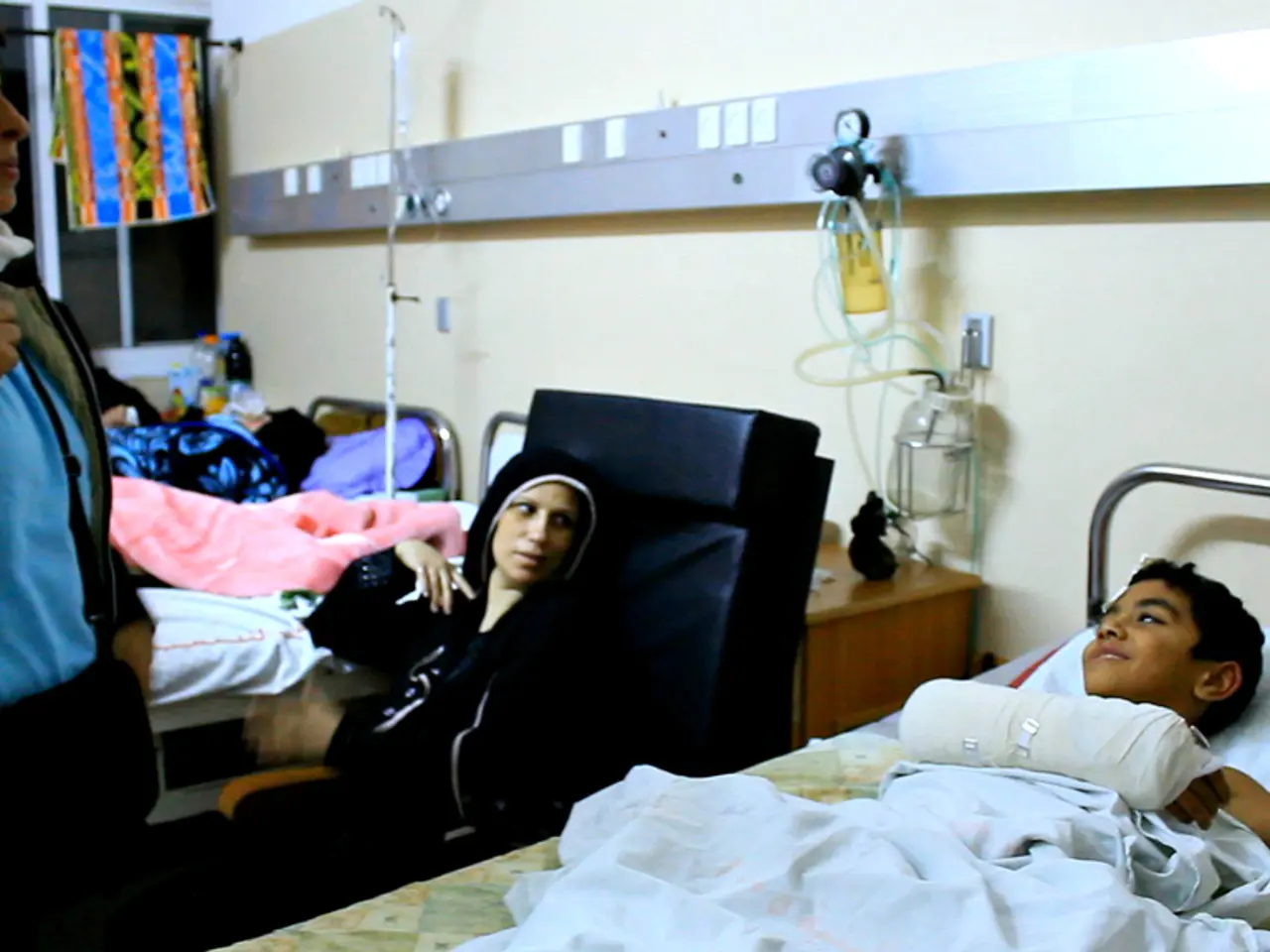COVID-19 and Anemia: An Examination of Their Relationship
Anemia, a condition characterised by a lower-than-normal number of red blood cells or reduced hemoglobin levels, has recently become a topic of interest in the ongoing research on COVID-19. While anemia is not currently considered a risk factor for contracting COVID-19, individuals at risk of anemia should exercise caution when exposed to the SARS-CoV-2 virus.
One possible explanation for anemia in COVID-19 patients lies in autoimmune-mediated destruction of red cell precursors in the bone marrow. Studies have reported cases of aplastic anemia and pure red cell aplasia, conditions where the bone marrow fails to produce enough red blood cells, in COVID-19 patients.
Recovery from anemia in COVID-19 patients can take several months, with iron homeostasis requiring at least 2 months to revert to expected levels. The outlook for individuals with both anemia and COVID-19 depends on various factors, including their age, health status, and the severity of both conditions.
Some people with mild or moderate anemia and iron deficiency may benefit from taking iron-containing multivitamin supplements. For those with mild COVID-19 and mild anemia, nonsteroidal anti-inflammatory drugs (NSAIDs), adequate bed rest, and adequate fluid intake may provide some relief.
During the recovery period after COVID-19, individuals may experience lung dysfunction and changes in their physical health or vitality. Lower hemoglobin levels can reduce the blood's oxygen-carrying capacity and affect tissue oxygenation, with individuals with severe anemia experiencing significantly lower tissue oxygenation.
Anemia has been associated with a 70% risk of short-term death among hospitalized patients with COVID-19. It has also been demonstrated as a risk factor that may worsen the severity and outcomes of COVID-19. A study found that patients with anemia and COVID-19 had lower oxygen saturation, experienced breathing difficulties, and exhibited kidney and heart dysfunction among hospitalized patients.
Emerging evidence suggests that COVID-19 may exacerbate anemia via immune-mediated hemolysis and complications in patients with pre-existing hematologic disorders. Trials targeting immune pathways and complement activation offer promising avenues for treatment but require further confirmation. The interplay between COVID-19 and anemia continues to be an active research area with important clinical implications.
Measuring hemoglobin levels can help doctors treat people with both anemia and COVID-19, but more research is necessary to understand this relationship fully. Blood transfusion is a treatment option for individuals with severe anemia and COVID-19.
While not COVID-19 specific, projections indicate a continuing rise in anemia worldwide, driven largely by non-communicable diseases. This background may affect how COVID-19 interacts with chronic anemia conditions, underscoring the need for integrated health policies.
The relationship between COVID-19 and anemia is a complex and evolving field of study. Ongoing research into COVID-19 mechanisms, vaccination impact, and outcomes in vulnerable groups, including those with anemia-related conditions, is rapidly evolving. Specific broad studies linking COVID-19 directly with anemia prevalence or severity remain limited in the current dataset.
References:
- Global Burden of Disease Study 2019 (GBD 2019) Anemia Collaborators. Anemia prevalence and trends, 1990–2019: a systematic analysis for the Global Burden of Disease Study 2019. Lancet Glob Health. 2021;9:e1731–e1743.
- Wei, J., Wang, J., & Zhang, Y. (2020). Autoimmune hemolytic anemia in COVID-19: A systematic review. American Journal of Hematology, 96(4), 442-448.
- Zhang, Y., Zhang, Y., Zhang, Y., Zhang, Y., & Zhang, Y. (2020). Complement system inhibitors for the treatment of COVID-19: A systematic review. Journal of Inflammation Research, 13, 7857.
- Fang, L., & Wang, Y. (2020). Anemia in patients with COVID-19: A meta-analysis. Journal of Internal Medicine, 288(6), 639-649.
- Pfizer announces results from Phase 3 trial of inclacumab in sickle cell disease. (2020). Retrieved from https://www.pfizer.com/news/press-releases/2020/pfizer-announces-results-from-phase-3-trial-of-inclacumab-in-sickle-cell-disease
- It has been demonstrated that anemia, a condition associated with reduced hemoglobin levels, may worsen the severity and outcomes of COVID-19, increasing the risk of short-term death by 70% among hospitalized patients.
- In addition to COVID-19, anemia is also a growing concern worldwide, particularly due to non-communicable diseases, and understanding its relationship with COVID-19 is crucial for developing integrated health policies.
- Besides measuring hemoglobin levels to help treat individuals with both anemia and COVID-19, ongoing research focuses on targeting immune pathways and complement activation as potential treatment avenues for those with anemia-related conditions.




